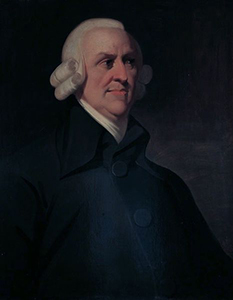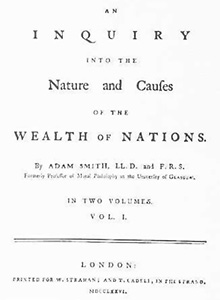There are those very vocal about proposing legislative amendments to the patent statutes, in an attempt to curb litigation abuse and thereby promote innovation.
The latest round of proposed amendments would allow the government to create a class protected from corporate veil piercing -- holding investors and those outside of a protected class with interest in patent assets personally liable, where their infringement accusations in litigation fail to meet the "objectively reasonable" test. But protected from veil piercing would be inventors, law firms, universities, and companies with a track record of commercial activity.
The thinking here: threatening personal liability against investors will disincentivize those outside of the protected class from purchasing patents and filing lawsuits that may fail to meet the objectively-reasonable test. This in turn will reduce frivolous lawsuits, thereby reducing wasteful litigation and promoting innovation.
Seems simple enough, but will it work? Will the creation of a protected class of patent holders reduce the potential for litigation abuse and thereby promote innovation?
Unfortunately no  -- the protected-class approach will not only (1) fall short of reducing the potential for litigation abuse, but will also (2) threaten the capitalistic underpinnings of our Patent Clause, so much so Adam Smith, respectfully referred to as capitalism's "Founding Father," would turn in his grave.
-- the protected-class approach will not only (1) fall short of reducing the potential for litigation abuse, but will also (2) threaten the capitalistic underpinnings of our Patent Clause, so much so Adam Smith, respectfully referred to as capitalism's "Founding Father," would turn in his grave.
(1) Why will the proposed protected-class legislation fall short of reducing the potential for litigation?
The proposed legislative amendments will not reduce litigation -- they will simply shift the class of entities asserting patent lawsuits. Instead of traditional patent financers, patent monetization knowledge will shift to those in the protected class and to those that are well funded enough to move into a protected class.
As an example, well-funded patent financers will continue to operate by purchasing low-value operating companies and having them hold patent assets to litigate. By owning an operating company, even well-funded "trolls" can fall within a protected class.
Hence, the latest proposed legislative amendments will not eliminate litigation or its potential for abuse -- they will only serve to shift the class of entities asserting patent lawsuits to those within the protected class.
(2) Perhaps most importantly, the proposed legislative amendments will be wholly and absolutely detrimental to America's innovation market.
Why?
To understand this, we must understand how capitalistic economies promote innovation -- Adam Smith clearly laid out the framework in the well-known An Inquiry into the Nature and Cause of the Wealth of Nations.
Put simply, division of labor produces the greatest improvement of society's productive powers, including innovation. See Wealth of Nations, Book 1, Chapter 1, "Of the Division of Labor," I.1.1 ("The greatest improvement in the productive powers of labour, and the greater part of the skill, dexterity, and judgment with which it is any where directed, or applied, seem to have been the effects of the division of labour.") (emphasis added).
This division-of-labor principle is reflected in our innovation industry -- some specialize at inventing and creating patented discoveries, others are better suited at financing, others yet are inclined towards manufacturing, and yet others are more skilled at marketing and distribution.
To maximize the power of the division-of-labor principle to our innovation industry, Smith explained that we need to do two things: (1) increase the innovation market size and (2) maximize exchangeability in the innovation market.
(1) Regarding the mar ket size, this sets the upper bound of the division-of-labor principle. The larger the market, the greater potential for the division-of-labor principle to take foothold in the market place. See Wealth of Nations, Book I, Chapter III, "That the Division of Labour is Limited by the Extent of the Market," I.3.1 ("As it is the power of exchanging that gives occasion to the division of labour, so the extent of this division must always be limited by the extent of that power, or, in other words, by the extent of the market. When the market is very small, no person can have any encouragement to dedicate himself entirely to one employment, . . .") (emphasis added).
ket size, this sets the upper bound of the division-of-labor principle. The larger the market, the greater potential for the division-of-labor principle to take foothold in the market place. See Wealth of Nations, Book I, Chapter III, "That the Division of Labour is Limited by the Extent of the Market," I.3.1 ("As it is the power of exchanging that gives occasion to the division of labour, so the extent of this division must always be limited by the extent of that power, or, in other words, by the extent of the market. When the market is very small, no person can have any encouragement to dedicate himself entirely to one employment, . . .") (emphasis added).
(2) Regarding exchangeability, Smith explained that the power of exchange is the driving force behind the division-of-labor principle -- one man's surplus is exchanged for another's surplus. See Wealth of Nations, Book I, Chapter III, "That the Division of Labour is Limited by the Extent of the Market," I.3.1 ("As it is the power of exchanging that gives occasion to the division of labour . . . .").
And this power of exchange is the catalyst behind commercial growth and activity in any capitalistic society, including one that aims to promote innovation. See Wealth of Nations, Book I, Chapter IV, "Of the Origin and Use of Money," I.4.1. ("Every man thus lives by exchanging, or becomes in some measure a merchant, and the society itself grows to be what is properly a commercial society.").
So we can learn two things from Adam Smith. To promote innovation we must, one, increase the market size for innovation -- we need more people specializing as inventors, financiers, manufacturers, distributors, and marketing specialists. And two, we need to maximize exchangeability -- not only maximize exchangeability of the above skill sets, but also maximize exchangeability of patent assets -- the asset class of innovation.
By maximizing the market and increasing exchangeability in the innovation market, Adam Smith instructs that this will promote the division-of-labor principle, which will in-and-of-itself propel innovation.
So if that's the goal, then why is the proposed protected-class legislation so contrary to these tenants of capitalism?
How is it so contrary?
1. By limiting the innovation market to just those that fit within a protected class, this reduces the overall market for innovation. Notably, those outside the protected class will be removed from the innovation market.
And who are those outside the protected class? Patent financiers -- investors, fund raisers, brokers, valuators, monetization specialists.
Alarmingly, the protected-class legislation is attempting to remove this specialization -- patent financing -- from the innovation market.
But if we strip patent financing from the innovation market, then the successful inventors will be the ones blessed with financial means or an innate ability to fund raise. The successful start-up companies will be the ones with a bankroll or that can raise money on a competitive edge other than their IP. The successful law firms will be the ones that have monetization expertise and a large war chest to fund multi-front enforcement campaigns.
Removing the patent-financing specialization from the innovation market will force others in the protected class to adopt this specialization, on top of their native specialization.
But this contravenes the division-of-labor principle. If we want to promote innovation, we want more specializations, we want more people specializing in each segment, and we want them exchanging knowledge and expertise. We don't want to artificially strip specializations from the market, but this is exactly what the protected-class legislation is attempting to achieve.
As such, the protected-class legislation contravenes the division-of-labor principle and will hurt our innovation market -- we don't want this.
2. The proposed protected-class legislation will artificially and significantly reduce the alienability, or exchangeability, of patent assets.
Unlike currency, gold, or real estate, a patent's value will be determined by those wielding it, rather than the intrinsic worth of the patented discovery itself. Why would we possibly want to limit patent exchangeability in such a manner?
Because the protected-class legislation artificially removes specializations from the market to the detriment of the division-of-labor principle, and reduces alienability of patent assets, it is entirely contrary to the tenants of capitalism and will therefore fail to promote innovation in our capitalistic economy.
Put simply, the proposed legislative amendments of forming a protected class will not promote innovation -- it will be detrimental and damaging to it.
So, what's the solution?
Instead of trying to regulate litigation abuse through legislation aimed at attacking one group (patent financiers), why not let the courts regulate it? Aren't judges in the best position to determine if litigation abuse exists in a given case, and aren't they equipped with the authority to regulate it?
But isn't that how we got into our present state to begin with, by solely relying on the court system?
Perhaps, but perhaps that's why we're also seeing the Supreme Court make a strong statement of its intent to curb litigation abuse in Octane Fitness. In it, they lowered the bar and gave district courts more discretion to award attorney fees and award sanctions where it sees fit.
As represented by Octane Fitness, we are seeing the courts take an activist role to curb litigation abuse.
Instead of proposing short-sighted legislation that is entirely contrary to the capitalistic underpinnings of our economy and future, why not let the courts do their job?
* Mr. Bodepudi serves as a Managing Member for IP EDGE, which specializes in uncovering hidden value in IP assets and monetizing or acquiring such assets at a price point that maximizes value. Mr. Bodepudi negotiates and executes monetization strategies, directs marketing and lead-generation efforts, and provides client-service delivery.